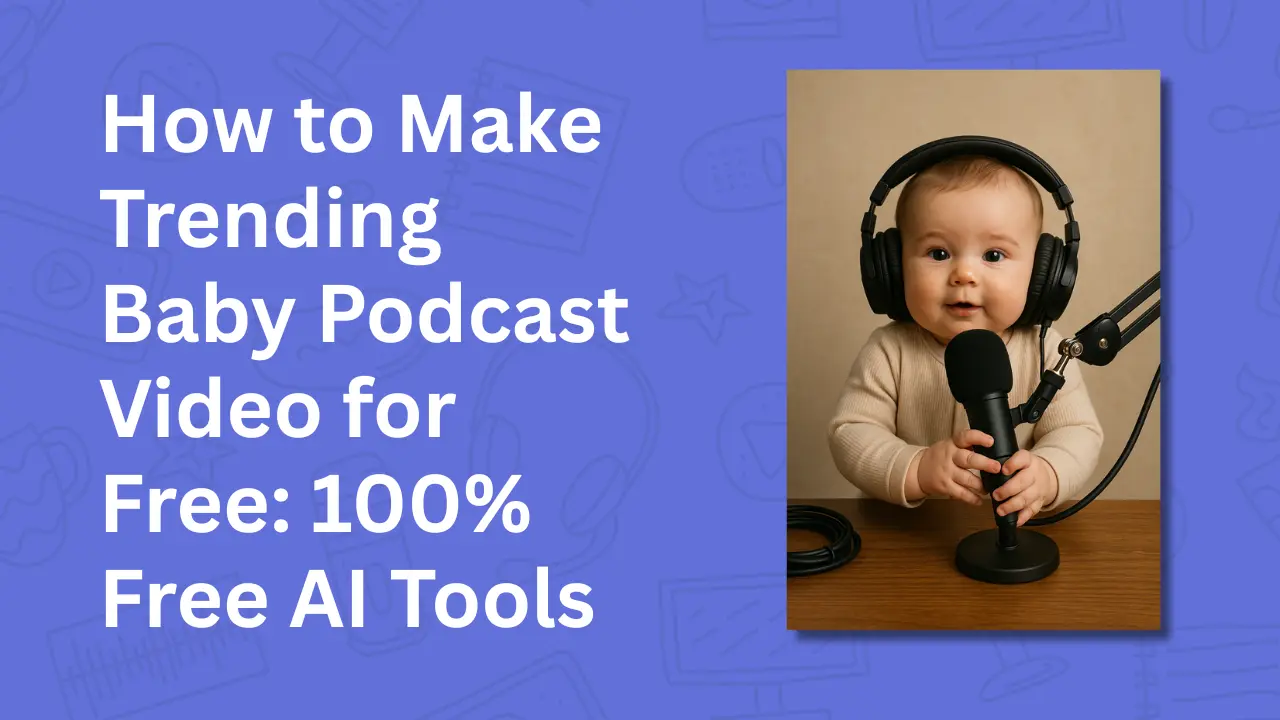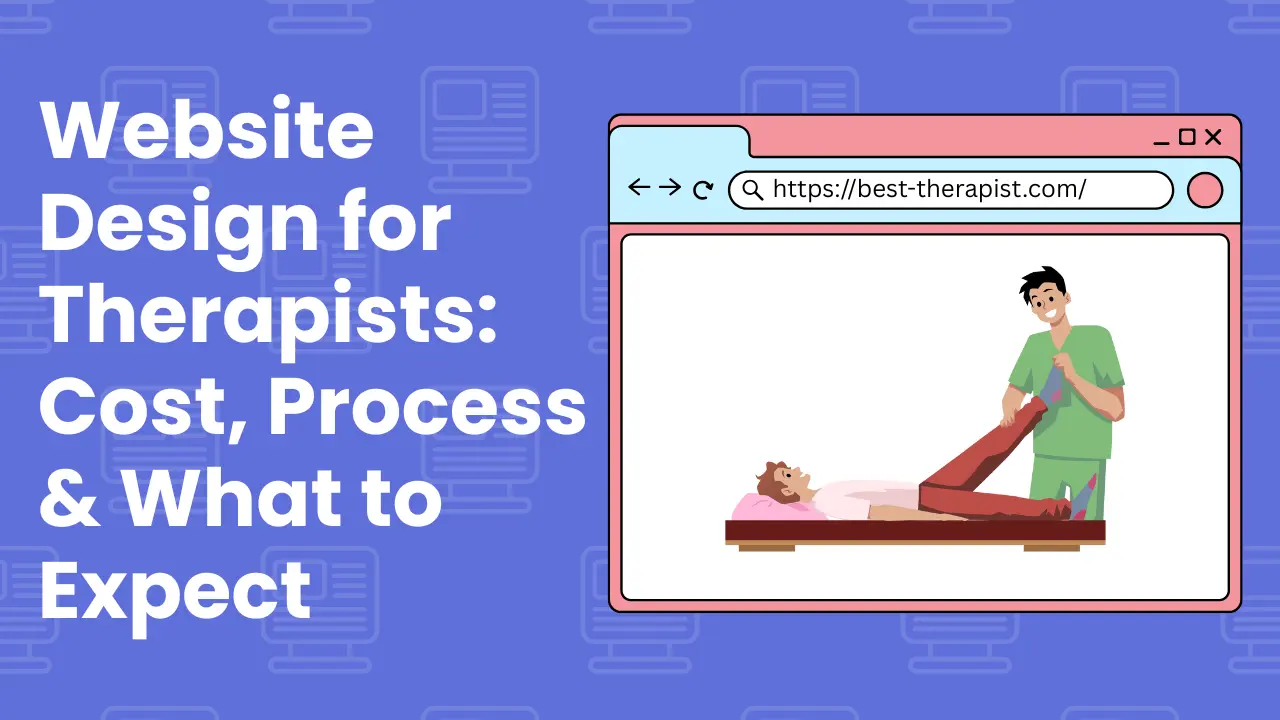For life coaches with websites or looking for website design services, you need to know that first impressions matter. Your website visitors will make quick judgments based on design, layout, content clarity, and ease of navigation. So having a professional-looking and user-friendly website is becoming a necessity in the digital age of 2025.
Whereas a poorly designed or outdated site can erode trust, a clean, engaging, and informative website can establish credibility and encourage visitors to take the next step.
Why Life Coaches Need a Great Website
Not the life coaches in the age of the internet; everyone has a business, and everyone needs a website who wants to reach their target audience.
Let’s find out some of the most important points so we can understand why even life coaches need a professional website.
1. Establish Credibility and Trust
A well-designed website shows how professional you are. It reassures visitors that you are a legitimate, experienced, and trustworthy coach. With clear messaging, testimonials, and polished visuals, your website becomes a powerful tool to build trust from the very first click.
2. Promote Coaching Services Effectively
Your website acts as your digital storefront—an organized space where you can present your services, coaching packages, and special programs. Visitors should easily find what you offer, understand how it benefits them, and feel encouraged to take action or contact you.
3. Convert Visitors into Clients
With strong calls to action (CTAs), an easy-to-use booking system, and compelling copy, your website can guide visitors through a smooth journey from finding information to contacting you. This conversion-focused design turns potential visitors into paying clients.
4. Build a Personal Brand and Showcase Authenticity
Life coaching is deeply personal. Your website is the perfect platform to share your story, values, coaching style, unique selling proposition, and vision. By highlighting your personality and unique approach, you stand out from the competition, and you attract clients who resonate with your message and energy.
Key Elements of a High-Converting Life Coach Website
A website should be built according to the type of audience and business you want to present. So every website needs some unique feature that can represent your business successfully.
In this article we discuss the main elements of a life coach’s website.
1. Clear Value Proposition
Your life coach website homepage should immediately explain your work and the services you are providing and how you help your ideal clients achieve their goals—making it clear why they should choose you over others.
2. Professional Branding and Design
A website should have a clean, modern design with consistent fonts, colors, and visuals that reflect your professionalism and personality, building trust with potential clients from the first impression.
3. Engaging “About” Page
The About Us page is the key element to share your journey, qualifications, values, and passion for coaching in an authentic way that helps visitors emotionally connect with you and get to know about your experience and qualifications. This ultimately enhances website conversion rates.
4. Testimonials and Success Stories
Adding real client feedback and transformation stories on websites builds credibility and provides social proof that your coaching delivers real results. Testimonials or success stories are the most important element showcased in businesses like yours.
5. Call-to-Action (CTA) Buttons
It’s important to strategically place buttons like “Book a Free Call” or “Start Your Journey” on the website. These guide users to take the next step in working with you, improving conversions.
6. Service Pages with Booking Integration
If you are a service provider, then having a detailed service or package for each service helps visitors to understand what is included in services, pricing (if applicable), and an easy way to book or inquire directly.
7. Mobile-Responsive Design
In 2025, mobile responsiveness is the most important factor for the online success of businesses. With most users browsing on mobile, your site must load fast and display perfectly on all screen sizes to ensure a seamless user experience.
Mobile responsiveness is also an essential element to show your website higher in search engines.
8. SEO-Optimized Blog Section
SEO is essential if you want organic traffic and leads to your websites. For this, you need a regularly updated blog using keywords your target audience searches for helps increase visibility on Google and positions you as an expert in your niche.
9. Email Newsletter Signup or Lead Magnet
Offer a valuable free resource (like a workbook or checklist) to encourage visitors to share their email and stay connected through your newsletter.
10. Contact Form or Booking Scheduler
Contact forms and booking schedulers are one of the most essential elements for any website. Make it easy for potential clients to reach you or book a session. You can add a simple contact form or add using tools like Calendly for scheduling.
Life Coach Website Design Best Practices
Here is the list of best practices to build a professional website for your life coach business.
- Keep the design clean and clutter-free.
- Use calming and motivational color schemes.
- Add real photos for authenticity.
- Integrate an easy-to-use calendar or scheduler (e.g., Calendly).
- Ensure fast load times and smooth UX.
- Use NLP-optimized headlines and emotional copy.
- Add social proof and trust indicators.
- Optimize for voice search and mobile SEO.
Top Life Coach Website Examples (With Analysis)
#1 Marie Forleo –
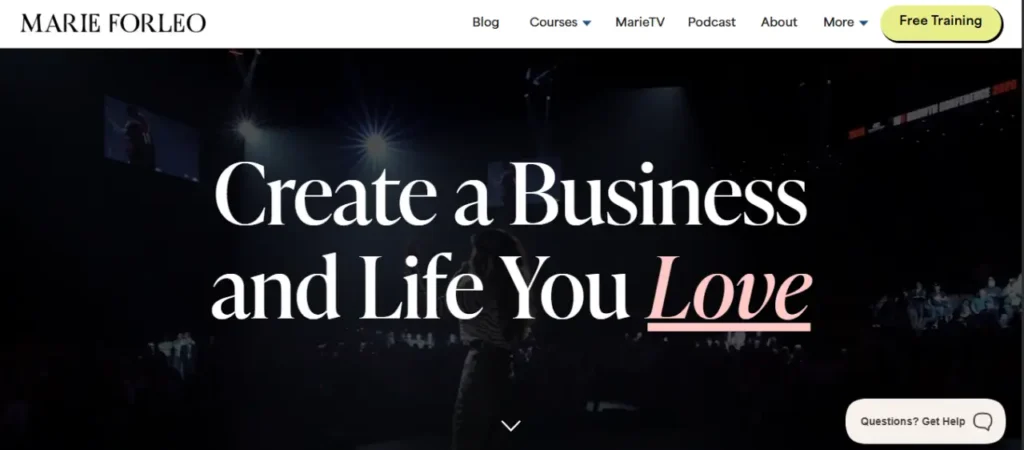
Marie Forleo is one of the most popular personalities who is a life coach, author, and businesswoman. She has her beautiful life coach website, which is a great example of a website for life coaches.
Here are the things to notice on this website.
Design elements to note:
- Strong personal brand with bold imagery and a motivational tagline.
- Clean, elegant layout with a balanced mix of visuals and white space.
- Consistent colors and fonts create a premium, approachable feel.
- Authentic visuals and videos build trust and emotional connection.
- Strategic CTAs drive conversions without overwhelming the user.
- Mobile-friendly design ensures a seamless experience on all devices.
Development elements to note:
- Fast-loading pages with optimized media and scripts.
- SEO and accessibility best practices enhance visibility and usability.
- User-friendly navigation with intuitive structure and sticky header.
- Tool integration for email marketing and video engagement.
- Scalable backend supports frequent updates via CMS.
#2 Fearless Wolf Life Coaching –
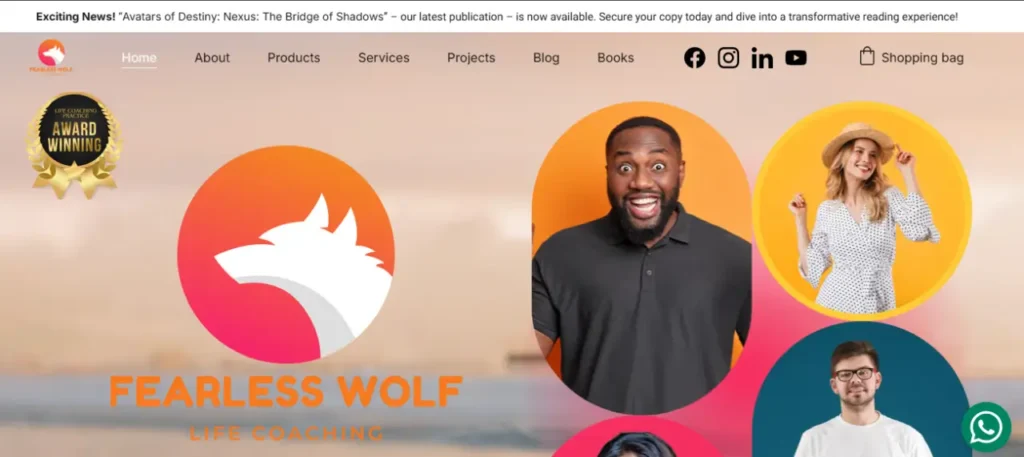
Fearlesswolflifecoaching’s website is another good example of inspiration to build a professional and fully functional website for life coaches.
Design elements to note:
- Strong branding with wolf imagery.
- Clean layout with clear coaching message.
- Earthy colors and bold fonts feel grounded.
- Authentic, straightforward content.
- Visible CTAs for booking/contact.
- Mobile-friendly and readable.
Development elements to note:
- Simple, effective setup for small practice.
- Fast-loading with minimal content.
- SEO-friendly structure.
- Easy booking/contact integration.
- Likely built on Wix or GoDaddy.
#3 Tony Robbins –
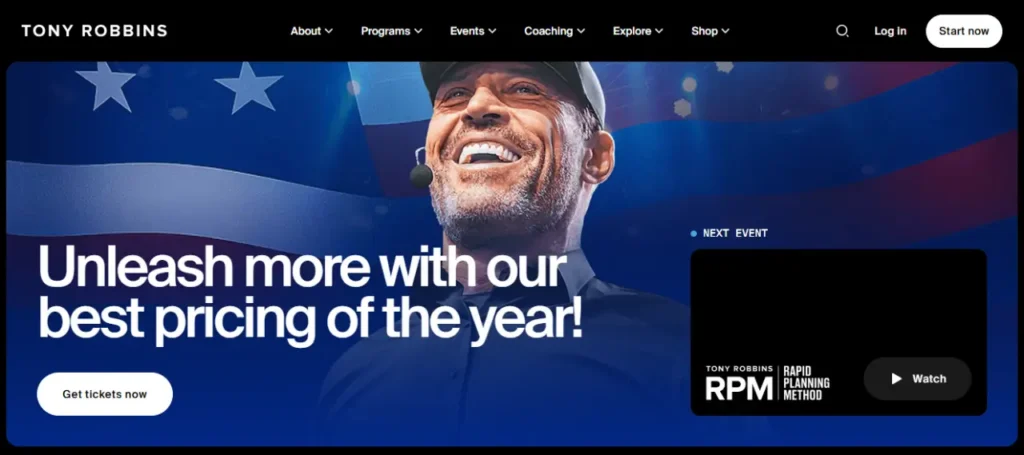
Tony Robbins is a renowned personal and business coach. He has a perfect website with self-branding.
Design elements to note:
- Clear content hierarchy.
- Bold visuals and CTAs.
- Strong social proof elements.
- Funnel-focused layout.
- Consistent branding.
- Fully responsive.
Development elements to note:
- Pro-level funnel setup.
- Fast and optimized.
- SEO-friendly content.
- CRM and email integrations.
- Scalable CMS backend.
Common Mistakes to Avoid
We also want to share the common mistakes life coach websites have that you need to avoid.
- Overloading with too much text
- No clear CTA or funnel
- Generic stock imagery
- Poor mobile experience
- No real client testimonials or proof
Final Thought
Just a website is not enough to run a successful life coach business; you need a professional website designed by expert website designers or agencies. Keep in mind that the representation of your website and the services you provide should communicate clearly with your target audience.
About the author
Popular Posts
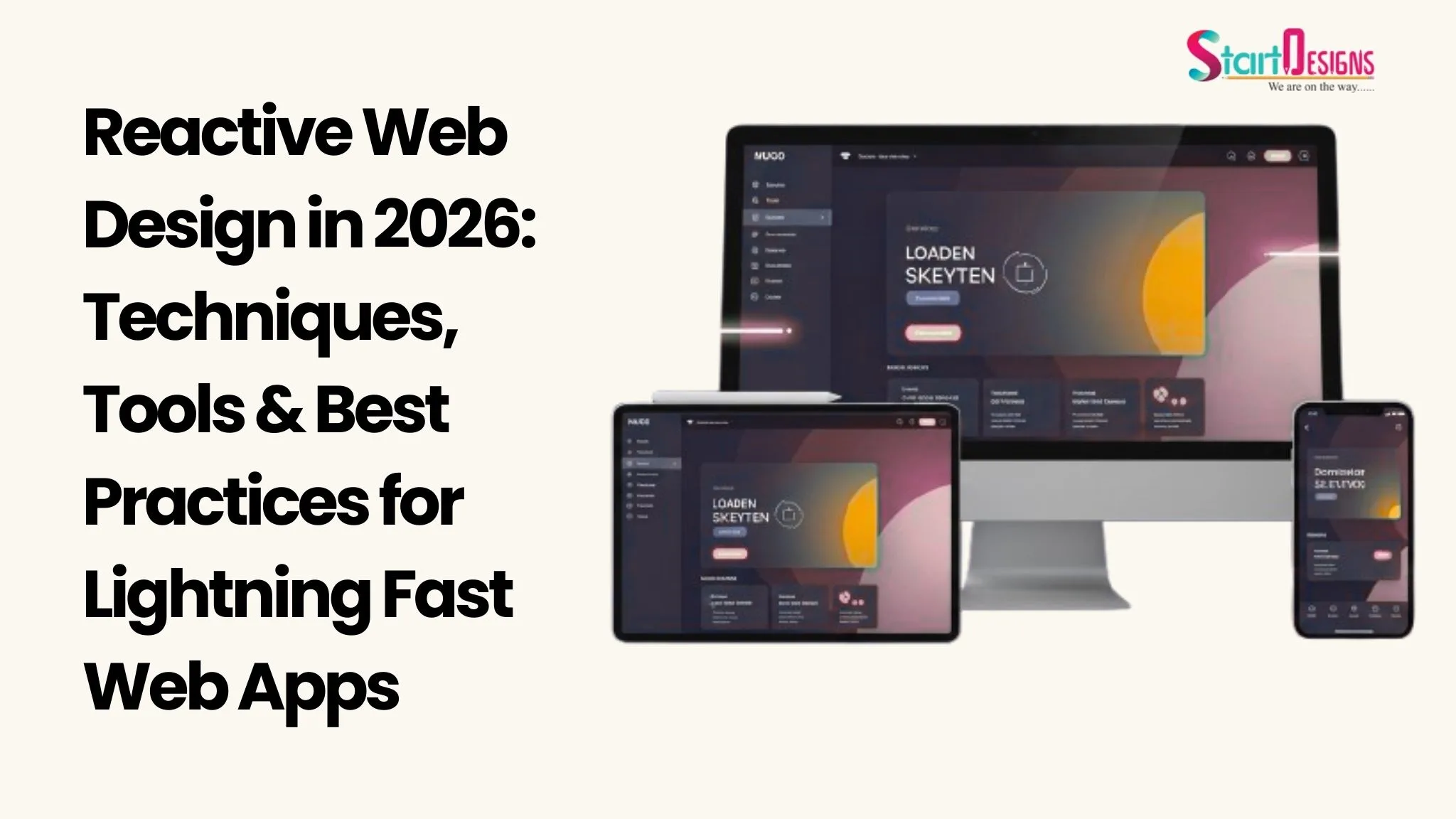
Reactive Web Design in 2026: Techniques, Tools & Best Practices for Lightning-Fast Web Apps
January 23, 2026- 6 Min Read

15 Inspiring B2B Website Designs to Watch in 2026
January 8, 2026- 7 Min Read

Top Web Design & Development Companies in the USA for Scalable Growth (2026)
January 6, 2026- 8 Min Read

